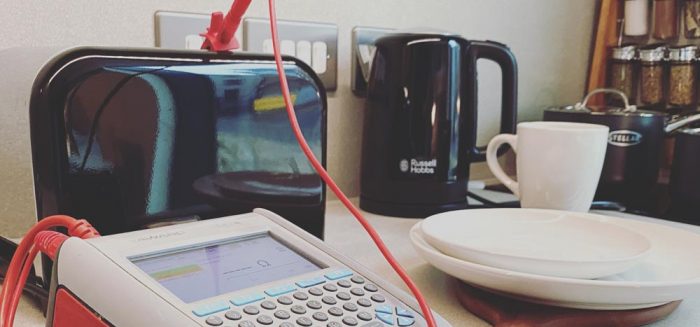PAT Testing rental properties
6 useful tips for rental property safety
These 6 useful tips for rental property safety should come in very handy if you rent your home of a landlord or agency; or if you rent property to tenants.
It scares me how many properties I go in to that are landlord owned, when they are such a mess. And I don’t mean due to the tenant, but due to the lack of care by the landlord. I often wonder why they’re getting PAT testing done when they really should sort out the mains wiring, the plumbing and the damp!
PAT testing rental properties
PAT testing rental properties should never be overlooked if you are providing appliances as part of a tenancy agreement; this includes integrated appliances like cookers and fridges.
PAT testing for Landlords is important as it can reduce the risks incurred from faulty electrical appliances.
There are approximately 100 fires that occur in UK properties every year, from faulty television sets, and 296 from ovens so getting appliances checked is worthwhile; we don’t know if these are in rental properties or privately owned homes but if more homes had appliance testing done faults would be found and these numbers would surely reduce.
Check out this article from the BBC on faulty appliances in the home.
6 Useful tips for safety in the home:
- Complete the “warranty card” that comes with a new appliance and return it to the manufacturer – you’ll then be notified in the event of a recall notice
- Encourage tenants to not leave appliances unattended when in use, such as going to bed with the oven on
- Ensure you have fitted smoke alarms, and check them regularly
- Ensure that the appliances are regularly maintained and cleaned
- Ensure that the electrical installation is safe, and that appliances are installed on RCD safety circuits.
- Get the appliances PAT tested on a regular basis
Check out our other post on the landlords electrical safety certificate.
Where a landlord provides an electrical appliance as part of a tenancy, the law expects the appliance will be maintained in a safe condition that will not cause harm to the tenant. Failure to do so could lead to the landlord being sued for negligence. However, the law is relaxed on how landlords should ensure they do this. As such, unless specifically required as part of a licence condition, portable appliance testing is always best practice for landlords but it is not a legal requirement.



